For a few months now, I’ve been eating white potatoes in my personal interpretation of Paleo with great personal success. I ditched grains back in mid-2010, and pretty much conducted the Paleo/Primal lifestyle ‘by the book’ – largely avoiding potatoes up until November 2011. (For what it’s worth, I’ve heard that Cordain didn’t include potatoes in the original Paleo Diet due to concerns with glycoalkaloids – read on for more on what those are and what that means to those who choose to eat potatoes.) However, back in November 2011, a post went up on Robb Wolf’s website basically saying that potatoes are “okay” to eat if you were meeting your personal fitness and body composition goals. This is the particularly resonant part of the post:
“(Should everyone) out there (be) chowing down on potatoes? Unfortunately, no. Not because there is anything unhealthy about potatoes, but a lot of people cannot process dense carb sources in a healthy way. It ultimately depends on your activity level and metabolic status. Basically those carbs fuel your activity level. If you’re living a desk to couch lifestyle then either up your activity level or keep the intake low. You have to earn your carbs. If you have metabolic issues (read: abdominal fat) then you need to get that sorted out first since you are not processing carbs correctly. It ends up being shuttled to the fat tissue instead of being available as energy.But if you are a lean, hard training athlete then go ahead and eat up. In fact, you NEED to. Without sufficient dietary carbohydrates your body will start scavenging protein to convert to glucose (a catabolic process) and your aerobic capacity will suffer without sufficient glucose to burn the fat.” (Read the full article here)
Check and check – so the next time we were in Whole Foods, I dropped a 5lb bag of organic Russet Potatoes in our cart and we were on our way.
At the start of the new year, Hayley and I decided to join the masses of people cleaning up their diets by doing the 21 Day Sugar Detox. Diane Sanfilippo (who runs Balanced Bites and the 21 Day Sugar Detox) is a good friend of ours. She came to stay with us for a few weeks back in December while she cooked recipes for her upcoming book and we photographed them. She knows both of our personal dietary nuances very well – I, for example, have a FODMAP issue and that I generally feel better eating more starchy foods instead of those under the “FODMAP” umbrella. Given that, she gave me her blessing to keep starchy foods in (within reason) during the detox.
Throughout the 21 days, we’ve been blogging every day and posting nearly every meal, blog-worthy or not, to our Facebook Page. This has raised quite a few eyebrows, especially the part about me eating white potatoes somewhat regularly. Without fail, several people asked why I was eating potatoes. It seems a bit silly to us that potatoes are under heavy scrutiny, as people seldom ask us those same questions about our modern interpretations of “Paleo” baked goods (Chocolate Chip Cookies with Candied Bacon, anyone?) It’s funny because things like that would never have been recognized by our paleolithic ancestors as food – yet toss Grok a potato (or anything edible) and I’m sure he’d know it was something he could cook and eat. In other words, this way of life is a point of reference from which to conduct deeper, more critical thinking than just whether something is “Paleo” or not.
Robb Wolf isn’t the only heavy hitter that has weighed in on potatoes – so have Kurt Harris, and our friend Mark Sisson. While Kurt admits readily to eating potatoes, Mark takes a slightly harder line on them:
“(Potatoes) represent a bolus of dietary starch, which can wreak havoc on the insulin resistant, but they are undeniably whole, real foods that don’t require much processing beyond simple heating.
Deciding whether potatoes fit into your diet is ultimately a personal decision, but exactly how your body reacts to starch – in its current metabolic state, which, remember, is not set in stone – should be the major determinant. Other potential, secondary concerns with potato consumption exist, things like glycoalkaloids, macro- and micro-nutrient counts, intestinal permeability, and anecdotal accounts (including my own) of joint irritation, all of which I’ll get into next time, but for now, potatoes reside in dietary limbo.” (read the full article here)
But cavemen didn’t eat potatoes!
Here is the thing that really grinds my gears about the whole Potato argument with respect to whether or not they’re “Paleo.” Most often, I hear the argument against potatoes in the context that “the cavemen didn’t eat potatoes” – the ever-popular “reenactment” argument (which is pretty lame). Potatoes in their modern form were originally cultivated in Peru around 8,000 BC, and then brought to Europe in the late 1500’s. If people were cultivating potatoes earlier than 10,000 years ago, the benchmark for the dawn of agriculture (and thus, the Neolithic Era) would be different too. If anything, I’d say it’s quite compelling that potatoes were one of the earliest cultivated crops, suggesting they were probably a food source before organized agriculture – and one that early Peruvians felt were worth the effort of trying to cultivate. If you’re all riled up at this point about whether or not potatoes are a Neolithic food, head over to Free The Animal and read Richard Nikoley’s response to this very same issue – we like what he has to say. According to some of the articles I consulted in writing this post, the hypothesis that potatoes (ie. tubers) were consumed prior to the Neolithic Era is possibly true. To quote Mark Sisson again:
“Evidence exists for human consumption of roots and tubers from multiple sites spanning multiple time periods: Northern Europe (specifically Poland), in the terminal Paleolithic and early Mesolithic. Clearly, we have the physiology (amylase production, glucose metabolism), the tools (fire, hearths, digging implements), and the motivation (attraction to dense caloric sources with negligible or easily neutralized anti-nutrients) to consume starchy tubers.” (read the full article here)
Instead of trying to go down the decision-making paths of “WWCD” (What Would Cavemen Do?) we prefer a more intuitive approach to eating “Paleo.” Some people call it Primal, some people call it Archevore, and some people just call it eating clean. Whatever name you give it, the worst thing you can do is try to cram it into a neat little box with hard lined boundaries and food definitions. Eating an ancestral diet is not one-size-fits-all. (As Liz Wolfe, who edited this post, pointed out to us – this is probably why we, as a community, have gravitated towards the “ancestral” term.) There are important personal nuances to digestion and nutrition that make n=1 a very important exploration (in other words, it is best to find out what works for you on a personal level.)
Important things to consider about potatoes:
- Peel the potato! White potatoes are in the nightshade family, but unlike most other nightshades, most of the anti-nutrients are in the skin. This is because the skin of the tuber, in addition to the stem and leaves, is where the plant has defense mechanisms. Glycoalkaloids are the primary toxin in potatoes (almost all plants have toxins – please note.) Age of the potato, skin damage, and exposure to light can increase glycoalkaloid content in the tuber as well – so buy fresh, undamaged potatoes and keep them out of the light. Again, most of the glocoalkaloids are in the skin of the tuber, so peel those potatoes.
- Always Buy Organic potatoes. In modern times, potatoes have been used in cultivation as a means to pull toxins out of the soil. (Potatoes are #9 in the “Dirty Dozen”)
- Avoid green potatoes, or potatoes with green spots – they contain saponins (which are also toxic).
- Potatoes break down to glucose. They are a big source of carbs – 26 grams in a medium potato, on average. Potatoes are not recommended for consumption by people who are trying to lose weight.
- Potatoes have a high glycemic index / low glycemic load. The GI number can vary highly from mid 50’s all the way up to the high 80’s, depending on the type of potato and how it is cooked. (see chart) – Got this clarification of GI vs. GL from Free The Animal, good stuff Richard.
- Better bowel function? A portion of the carbohydrates in potatoes do not break down in the small intestine. For most people, this produces a fiber-like effect and helps improve bowel function. For others, the insoluble starch will promote IBS-like symptoms. Be mindful of how you react.
- Potatoes contain some miRNA’s, even when cooked, which seem capable of interfering with human gene expression (Andrew of Evolvify writes a compelling argument against potatoes, rice and wheat – making some logical predictions based on micro RNA (miRNA) studies with rice. Read his outstanding post here.)
And now, a side-dish recipe using potatoes! This recipe is adapted from a Rachel Ray recipe (I know what you’re thinking right now: “yuck”) that I made pretty regularly in my post-college years. The original recipe is quartered potatoes, oven roasted with a brown mustard and white wine dressing with cranberries. I used to make that bad boy on my grill’s skillet, and it was mighty tasty. For our take on this recipe, we adjusted the dressing to our liking and made some embellishments. We also brought the cooking for this one back into the kitchen so that no one has to fuss with a grill in the winter months.
An option for this recipe would be to use turnips in place of potatoes.
Ingredients:
- 5 medium potatoes (or turnips if preferred)
- 3/4 lb green beans
- 1/4 cup bacon grease (or grass fed butter or coconut oil)
- 2 tablespoons slivered almonds
- 2 tablespoons brown mustard
- 1 tablespoon white balsamic vinegar
- 1/4 cup sun dried tomatoes, diced
- 2 tablespoons minced onions or shallots
- salt and pepper
- Peel potatoes and cut into 1″ pieces
- Parboil potatoes for approximately 15 minutes, or until fork tender.
- Preheat oven to 425 degrees.
- Add green beans to boiling water for 2-3 minutes. Then drain, and add to rimmed baking dish. Reserve 1 cup of hot water, and rehydrate sun dried tomatoes if they are fully dry.
- Add slivered almonds over the potatoes and green beans.
- Melt bacon grease if solid (or other fat), and toss with green beans, potatoes and almonds.
- Roast for 15-20 minutes, or until potatoes get golden brown edges.
- In a small mixing bowl, combine brown mustard, white balsamic vinegar, minced onion, diced sun dried tomatoes, and salt and pepper to taste. Whisk together until mixed evenly.
- Toss potatoes and green beans with brown mustard dressing, and serve warm.

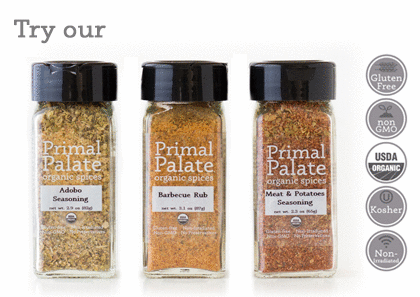
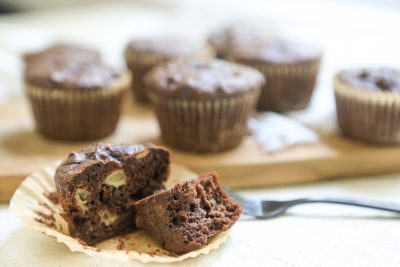

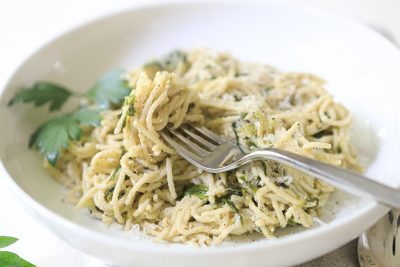

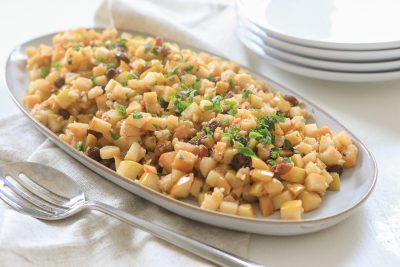
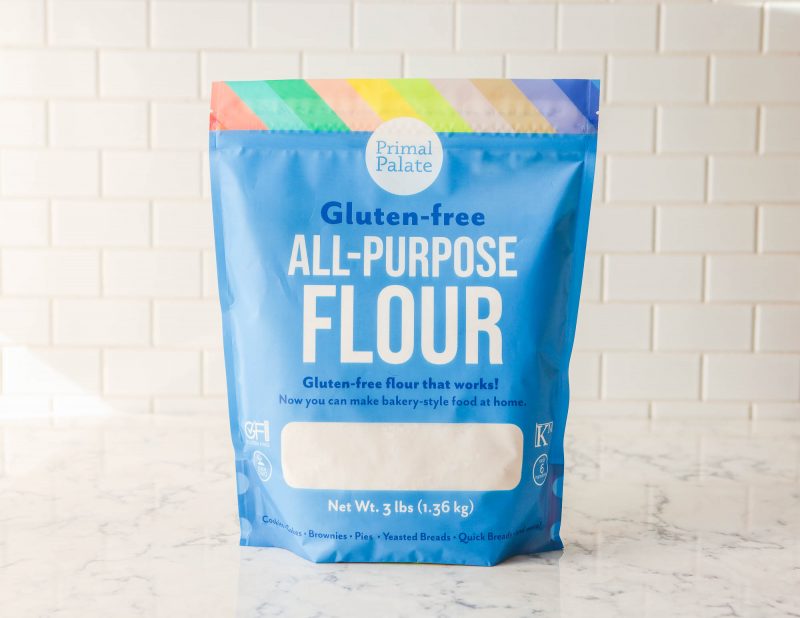

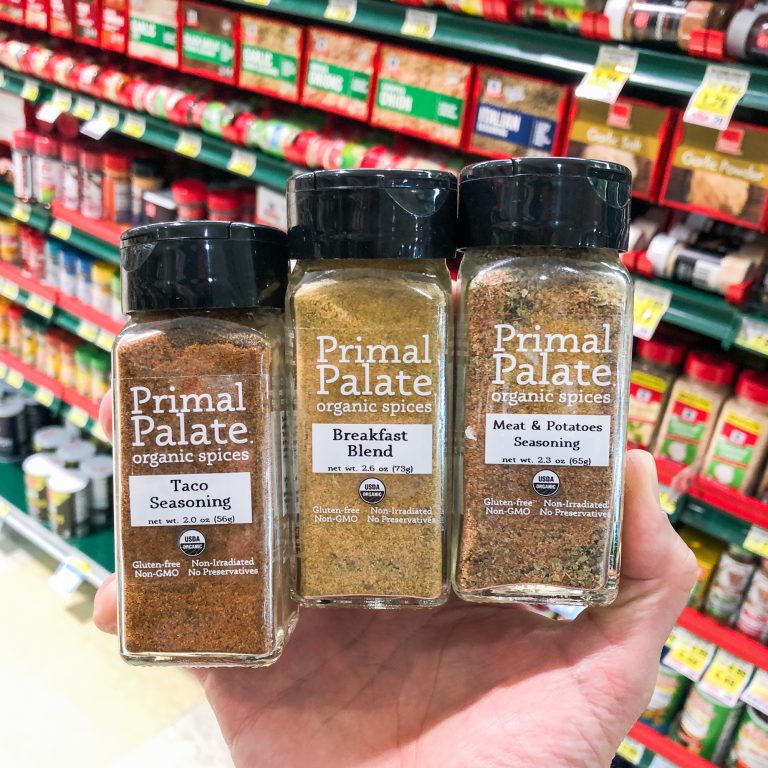
You know, I had a couple fries off my husband's plate the other night and realized that I now considered potatoes a once-in-a-blue-moon treat.
I can live with that. 🙂
Thanks for the thorough and informative post.
I myself don´t eat them as I need to lose weight. But my son who is 3 is doing much much much better SINCE I reintroduced white potatoes. He had hardly any energy before so it seems that he needs the energy they provide.
I will never understand why potatoes are being made into the evil food yet we eat all other starchy tubers? I just limit them for weightloss but if i´d be my perfect weight then I would certainly have them from time to time..
I absolutely loved this post. Thank you so very much for weighing in on this issue! It is very reflective of how I feel about the lifestyle in terms of "ancestral", etc. Nerding out for a minute: as an analyst by trade, I appreciate the depth of discussion, research, and quality of writing for this post. 🙂 That being said, I do have a question: I have a one year old who has been eating all organic, local, and Paleo since the day I started him on solids. He is a solid, intelligent, energetic kiddo, and before anyone panics, his pediatrician ran tests and backs his "diet" 100%. He eats (and loves) a ton of sweet potatoes, but besides that has entered a veggie rejecting phase. I've begun hiding them in meatballs and cooking them in a little bacon fat which seems to be peaking his interest, but have wondered about introducing him to white potatoes. I personally do not consume them as I have yet to reach my final goal (86 pounds healthier since I had him, thanks to changing to this lifestyle!) Should I treat them with care, and introduce them to him slowly to see how he reacts?
For me, I feel that focusing on the paleo-ness or un-paleo-ness of a particular food or ingredient misses the point. The big picture is that we should be eating primarily non-starchy veggies and animal protein. Potatoes are fine in moderation if they fit your macros but should not be a substitute for your meat and veggies. Something can be "paleo friendly" but that doesn't necessarily mean that you should eat it with reckless abandon.
Cebon,
I would say intro white potatoes to him and see what he does. I have had to give my kids (3 and 1) at least 10-15 tries of foods they had previously rejected before they would eat them – OK, not the 1 year old, she eats anything I put in front of her, including crayons and sneakers. But I find my kids do well on white and sweet potatoes in addition to eggs, meats, and broccoli. I also feed them green peas with grassfed butter or bacon grease. Oven-baked French fries of the white or sweet variety are a current favorite, as are hashes made of grated potato and bacon or ham, leftover hamburger or sausage meat, and some red peppers.
Small bodies need energy like ours do not. I would recommend you do an n=1 with your child and determine those things to which he best responds. If white potatoes or other starchy veg do not bother him, then keep feeding. Once growth spurts stop, their appetite naturally decreases and they refuse food until they are ready to grow again, and eat accordingly. I thought on many occasions that my 3-year old was going to starve because she barely ate anything for weeks on end, and then suddenly she would feed every 2-3 hours like the world was ending. Pay attention to the cycles and feed accordingly. If you keep the food "real" and don't allow junk to hold sway, you've more than won the battle.
Paleo or not, I avoid potatoes like the plague because they do a real number on my blood sugar. I've been in very tight control for a while now, and tried a bit of sweet potato the other night. My numbers spiked over 200 and stayed high for several hours. I won't be doing that again.
There's a good point there… Why are potatoes held up as the 'anti-paleo' tuber and no body says anything negative about other root veggies?
What makes the potato so different from sweet potatoes, carrots, rutabegas, turnips, parsnips, radishes, etc etc.?
For what it's worth, I currently follow the Perfect Health Diet (Paul and Shou-Ching Jaminet), which lists potatoes and white rice as "safe starches."
http://perfecthealthdiet.com/?page_id=8
This is a great blog, glad to have found you!
great post. ive recently started to incorporate more white potato into my diet. i have been eating a paleo/ancestral diet for about a year and a half, lost 40 pounds, and stalled out. i have another 30 pounds that i would like to lose, but have not budged for just under a year now. after reading "perfect health diet", i decided to do paleo, but to change my macros around so that im getting about 30% of calories from starch (and about 50% from fat and about 20% from protein). i was overdoing it on the sweet potatoes, getting bored, and concerned about the higher fructose content, so switching it up with white potatoes and even having the occasional rice noodles in my soup helped a lot. i have to say, i feel amazing. ive lost the weight gained over the holidays and my mood has improved immensely compared to when i was eating LC/VLC. im also getting less frequent and less intense cravings for alcohol and sugar. ill eat white potatoes a couple times a week- i like them sliced thin and added with spinach, mushrooms and bacon to a fritatta, or roasted with some duck fat. ancestral eating has no predetermined macronutrient ratios, and i have found that playing with those numbers within the paleo paradigm yields big changes.
While I avoid potatoes because of the blood sugar bump I get, my spouse can eat them, but I only buy the organic small red potatoes that have the lowest carb impact. And, of course, it is an occasional treat, like lots of other foods that might be paleo, but not wise for people watching their calories and carbs.
You gave a good synopsis of the issue!
Paleo dieters are VERY opinionated, you already know that! But you have to do what is right for you, and experimenting is part of the process. I noticed a lot of potatoes in your photos too, but different ppl burn things differently have different levels of activity. Its good to know at some point I could add them back maybe. Potato, potato, tomato, tomato…
I'm trying to lose weight but I know when I get down to my appropriate weight, I will still have to stay away from potatoes. My body has never responded well to starchy foods and they cause me to be extremely sluggish. My husband, however; has lost a ton of weight since we started Paleo and he didn't really have much to lose. I think I am going to start buying potatoes for him again. He looks too thin now and needs to gain about 20lbs.
I agree with you that ancestral eating is not a one-size fits all way of living. We all come from different backgrounds with different genetic makeup. It is important to know your body and what fuels it in a positive way.
This is a very worthwhile post. I am so glad I saw the phrase, "my personal interpretation of paleo" since that is exactly what paleo should be! Paleo is not a "diet"; paleo is a diet – it's what we eat underpinned by the reasons that we eat that way. Ancestral eating takes us so far, but the science behind why we've eaten that way for hundreds of thousands of years is what make paleo what it is: a template.
Chris Kressler is very sound on this, and I recall reading something on his blog that I liked: "it is better to eat the wrong food with the right attitude than the other way around". That said, Chris has always maintained that paleo is a template, not a doctrine. Heck! We're not vegans!
The key thing with carbohydrate, as with all paleo food, is to pick the better quality. Starches are the better carbs; fructose and grain the poor ones. Keeping starch intake below the requirement for glycogenesis is the key, and one which the Jaminets are keen to impress upon people who see their 'Perfect Health Diet' as a higher carb version of paleo – it is not.
Potatoes are with us. Understanding their uses, understanding their downfalls (like solanine in the skins, although they're the really tasty bit) and understanding how they fit into our diets is really important.
Again, this is a really useful post.
What's next, guys? Some white rice? 😉
While we're on potatoes, and you guys are considering them, please get a hold of some proper dripping and deep fry some chips (that's fries), but make them "fat fries" like we Brits do. You'll love 'em! Skinny chips, or pommes frites, (that's "your" fries) in duck fat for the proper European frites.
Have fun …
Hey Paul –
First of all, thanks for always having very kind, thoughtful comments on our blog. We always look forward to hearing what you have to say! 🙂
It's funny you mention Chris Kresser. I was taking running notes below the post as I wrote it and noted which of "the big guys" in our part of the world readily admit to eating potatoes. I wasn't sure if Chris did or not, but there is a whole slew of others who are on board with them. As you point out, they're a better carb source than fructose-laden fruits. Steven Guyenet, Kurt Harris, Richard Nikoley (to name a few).
Is white rice next? Truthfully neither of us are consuming it with any regularity. I've had white rice once in the last year, and that was with some sushi about a month ago. It was a welcome change, and I felt no worse for the wear afterward fortunately. I will do some more digging, but what I really like about potatoes that I do not like about rice is that potatoes are very clearly a food source. I'm not sure if I personally saw a rice plant I would "know" without a doubt it was something I could eat. In addition to all that, I read Andrew Badenoch's article on potatoes and rice (the link is at the bottom of our post), and he provides some pretty substantial research that condemns it. It's definitely worth a read, though a lot of it was over my head.
My own personal splurge as of late is boiling the peeled potatoes, mashing them with a little grass fed butter, forming them into little cakes, and then frying them in bacon fat. It's out of this world, my friend. Fries (US version) done in duck fat would be divine, I'm sure. I think that might call for some truffle salt as well. My gears are turning on that one.
Talk soon Paul – thanks for the thoughtful comments, as always!
-Bill
To take your latest splurge to the next level, Bill, just mix with some cabbage for another British favourite – Bubble & Squeak! I made a "posh" version with leftover Aligot and Cavolo Nero! You can google those for the detail … http://livingintheiceage.pjgh.co.uk/2011/12/posh-bubble-squeak.html
of course, the real treat in the potato calendar is Jersey Royal season – late April, early May for about a month of production only: http://www.jerseyroyals.co.uk/about-jersey-royals.aspx – lightly scrubbed, boiled and served with loads of pastured salted butter, what a treat! The flavour is like no potato you've tasted, or will taste!
Just prior to paleo, I went through a phase heavily inspired by a Baltic cruise and passed through my own delicate, but still masculine, culinary touch. I frequently made three courses – a sour starter with pickled, a salty soup and then a main with fish, or meat and few vegetables. One potato, three slices of carrot, that kind of thing. We really enjoyed that period and it did show that a single potato in a three course meal was quite sufficient – the rest of the food was actually … quite straight down the line paleo.
I hear you about the identifiable food sources. People would dig up roots and try to eat them. I'm not sure I'd know rice out in the field either, but that's the rice I wouldn't eat – all husk and gastro-intestinal scraping! White rice is processed food, but mechanically removing the husk is one thing, processing with lab ingredients is quite another. It's prepared, rather than processed.
I'm still making my mind up on rice – it does seem to bloat me, but doesn't give me heartburn. I tend to eat it only maybe a couple of meals a month when enjoying a restaurant curry with friends and the alternative would be flat breads or a fork and scorn!
Take care, guys … keep up the great posts. This no sugar thing has turned out to be a real adventure.
Thanks for the shout out. Yea, I don't make either white or sweets a dietary mainstay by any means, but a few, here and there simply helps to round out some meals and having generally great meals helps keep you on track.
Big picture.
BTW, I hope to get to a review of your book very soon.
I can see why people avoid potatoes if they are trying to lose weight/control blood sugar (though I know plenty of people who lose weight fine on a higher carb level), but the argument "Grok didn't eat potatoes" has always struck me as silly. Grok didn't eat almond butter, coconut oil, most modern fruit, or coconut flour pancakes either. And I highly doubt you got ground beef unless you were a baby Grokling and your mom was chewing it up for you.
Personally, I loves me some potatoes.
I spent my teenage years in Bolivia with my father traveling to the country trying to introduce the populace to renewable agriculture.
Potatoes in the US are NOT the only potatoes in South America. If you go to any market there you will encounter several different kinds of potatoes with different colors, sizes, tastes,and markings. There are different modes of preparing these different potatoes as well. Many markets carry the foot stomped, freeze dried kind. I've eaten the kind which are simply cooked in a pit of llama dung (then skinned). (I've also eaten guinea pig [a native wild animal of South America] filleted and skinned, then …apparently….smashed)
My point is that I wish the full contingent of potatoes were available in the US for consumption. They really do represent an entire grouping of food. The "poor" in Bolivia are very primitive farmers who won't turn their nose up to anything. They eat what they can get and (given availability) would be considered "paleo" participants.
I'm reasonably active, and I add some nice starchy yams or sweet potatoes round out most of my meals. They do wonders for soaking up fatty, residual meat juices 😀
No problem – I was happy to find your posts to mull over and reference. I especially appreciated your part II post – it really helped me tie all my thoughts together last night as I was wrapping things up. I'm with you on the big picture thing. I like the idea of adding in potatoes and sweet potatoes on a limited basis for some variety. More variety probably translates into more people getting on board (and staying on board).
Looking forward to your review of MIP…. just skip the recipe on page 56! Ha 🙂
See you in Austin,
Bill (and Hayley)
I hope they were homemade fries, and not something done in a suspect vegetable or seed oil!
You're welcome. Just standing on the shoulders of many smarter folks.
Thats great to hear he's doing better with the starch in his diet! I can understand why potatoes are a fringe food for us (consider how they're largely represented in the SAD – instant mashed potato flakes, McDonald's fries, and Friday's loaded potato skins… ugh!) I think people smart enough to follow an ancestral diet are ALSO smart enough to incorporate them in a logical context. 🙂
Absolutely, 100% agree with your sentiment here, Erica. I wanted to be very careful in crafting this post not to make it "Pro potato" – but more a resource for people on the fence. I hope everyone reads your last comment, because it's spot on.
I LOVE potatoes so much, but am highly intolerant to them 🙁 But, my husband is not, and also adores them, so I sent this his way. We've had this argument a few times…I think you guys have the right attitude about it. Thanks 🙂
Potatoes have just persisted as my one "can't live without" since going Paleo, and lucky me, they aren't an irritant to me. Sooo happy to read your article! Thank you!!
I know for myself, I can't eat them. I have PCOS and have to keep carbs to a minimum regardless of being Paleo or not. They wreak havoc on my blood sugar. Thanks for the info on the skins. I always thought the skin was the healthy part. Now I know to always peel when making them for my family. Love your blog! Thanks for your dedication to clean and healthy eating.
Thanks for this post. I have kept potatoes in my diet since day one of Paleo. Right now I have some stirfry roast, leftover beef shredded with potatoes, carrots, and fresh beans and saute all that in coconut oil, salt, pepper, opinion, and garlic. Yum.
I really like that your paleo philosophy is thought provoking. Your response to Paul Halliday’s query on rice was most interesting – ‘you didn’t think if you saw a rice plant you would recognise it as a food source’.
As a kid I spent many sunny afternoons happily eating the sweet not quite ripe seeds from wild oats and chewing on the acidic stems of sousob (oxalis). I didn’t spend much time at all testing out leafy greens. Any I tried were bitter and unpalatable…
To be honest, I’ve re-introduced white rice with regularity to my diet (1-2 times a week), and it’s been great. Thanks for the comment on this “old” post! 🙂 -Bill
Great post and beautiful philosophy. I look forward to reading more.
Potatoes are one of my favourite foods, but when I started paleo I decided to eat a bit less and making them a treat once in a while.